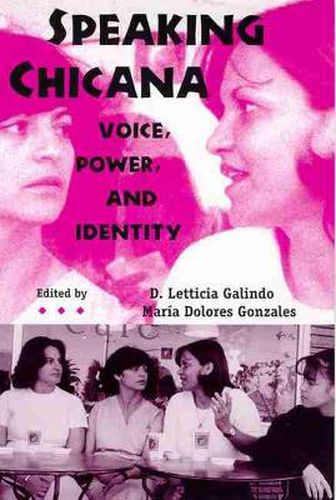Readings Newsletter
Become a Readings Member to make your shopping experience even easier.
Sign in or sign up for free!
You’re not far away from qualifying for FREE standard shipping within Australia
You’ve qualified for FREE standard shipping within Australia
The cart is loading…






Previous studies in the fields of applied linguistics, sociolinguistics, and gender studies have focused upon Chicano linguistic communities as a monolith or have focused entirely upon male-centered aspects of language use, leaving a tremendous gap in works about Chicanas, for Chicanas, and by Chicanas as they pertain to language-related issues. Speaking Chicana bridges that gap, offering for the first time an extensive examination of language issues among Chicanas. Flowing throughout this collection of essays are themes of empowerment and suppression of voice.
Combining empirical studies and personal narratives in the form of testimonios, the editors expand the boundaries of linguistic study to include disciplines such as art, law, women’s studies, and literature. The result is a multifaceted approach to the study of Chicana speech one that provides a significant survey of the literature on Chicanas and language production. Ten contributors from linguistic to lawyer, from poet to art historian discuss language varieties and attitudes; bilinguality; codeswitching; cultural identity and language; language in literature and art; taboo language; and legal discourse. Speaking Chicana celebrates the complexity and diversity of linguistic contexts and influences reflected in Chicana speech. Various essays explore the speech of rural women; the evolution of linguistic forces over time; the influence of U.S. public education; linguistic dilemmas encountered by literary authors and women in the legal profession; and language used by pachucas and pintas. Speaking Chicana represents a significant contribution, not only to sociolinguistics, but also to other fields, including women’s studies, Chicana/o studies, anthropology, and cultural studies.
$9.00 standard shipping within Australia
FREE standard shipping within Australia for orders over $100.00
Express & International shipping calculated at checkout
Previous studies in the fields of applied linguistics, sociolinguistics, and gender studies have focused upon Chicano linguistic communities as a monolith or have focused entirely upon male-centered aspects of language use, leaving a tremendous gap in works about Chicanas, for Chicanas, and by Chicanas as they pertain to language-related issues. Speaking Chicana bridges that gap, offering for the first time an extensive examination of language issues among Chicanas. Flowing throughout this collection of essays are themes of empowerment and suppression of voice.
Combining empirical studies and personal narratives in the form of testimonios, the editors expand the boundaries of linguistic study to include disciplines such as art, law, women’s studies, and literature. The result is a multifaceted approach to the study of Chicana speech one that provides a significant survey of the literature on Chicanas and language production. Ten contributors from linguistic to lawyer, from poet to art historian discuss language varieties and attitudes; bilinguality; codeswitching; cultural identity and language; language in literature and art; taboo language; and legal discourse. Speaking Chicana celebrates the complexity and diversity of linguistic contexts and influences reflected in Chicana speech. Various essays explore the speech of rural women; the evolution of linguistic forces over time; the influence of U.S. public education; linguistic dilemmas encountered by literary authors and women in the legal profession; and language used by pachucas and pintas. Speaking Chicana represents a significant contribution, not only to sociolinguistics, but also to other fields, including women’s studies, Chicana/o studies, anthropology, and cultural studies.